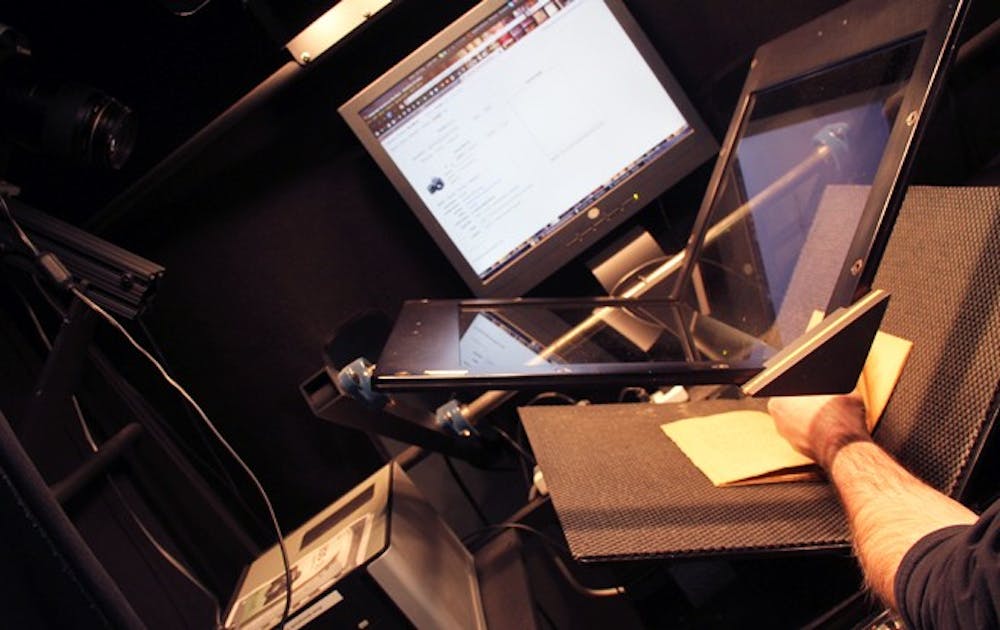Duke Libraries can now digitize books in the public domain upon request.
Last week, Duke Libraries announced that it is starting Digitize this Book, an online service for Duke students, faculty and staff who want books in digital form. The books must be in the public domain—published before 1923, meaning their intellectual property rights have expired—and be available in Duke Libraries’ collections. The service begins this semester. Duke is one of few places offering a public digitization service, if not the only one, said Liz Milewicz, head of digital scholarship and production services.
“This is really exciting as a way to better understand what library users want to digitize and respond to that,” Milewicz said. “It gives us the opportunity to make collections in the Duke domain accessible and usable.”
The process of digitizing a book for the first time takes about two days, Milewicz said. After a book has been digitized, it becomes readily available to the general public as a fully searchable, text-only document.
The library has had the digitization technology available for years—focusing on photographs, images and manuscripts—but the service was not available to the public, aside from special requests. About three years ago, a digitization center was installed specifically for bound and printed volumes. In the past year and a half, library staff members decided that digitization should be available as a public service, said Robert Byrd, associate university librarian for collections and user services.
The new service will help the library orchestrate the move to digitize hundreds of thousands of volumes in the print collection based on user requests, Byrd added.
“The service calls attention to the fact that we already have digitization in many of our holdings in the library,” he said. “This service will allow users to request works and feed that into the work flow so that info becomes readily available.”
Before the service was made public, a professor translating an 18th-century French volume requested a digital copy of the book because the original was so fragile. Byrd noted that the library would have never known she wanted the book digitized unless she had requested it.
Library Journal picked up Duke Libraries’ blog post from last Tuesday announcing the new service, and various additional sources have said the service is “innovative,” Milewicz said.
“It seems there is some jealously that Duke has this available to them,” Milewicz said. “Yale is interested in piloting a service like this, and they’ve been in touch since we posted on Tuesday.”
The library expects faculty and graduate students to use the digitization service most intensely, but the service also provides great opportunity to those studying abroad or those who want a less fragile copy than the volumes available in the library, Milewicz said.
Micaela Janan, director of undergraduate studies for the classical studies department, said she imagines the new service will be very beneficial to classical studies because they have such a close relationship to texts.
“We [in classical studies] acknowledge a reciprocal obligation between yourself and others,” Janan said. “Scholars must acknowledge those who have gone before them that have contributed to the question that the current scholar is investigating.”
Access to older editions of texts will be invaluable to scholars, as will being able search the digitized volumes and access them when working late at night, Janan noted.
The first request made through the online service came from a professor in the romance studies department last week for “The New Life of Dante Alighieri.”
Milewicz emphasized that the library is eager to see the feedback from users and see which volumes are requested.
“We are curious about the response to this service,” she said. “It gives us a sense of what our strategic priority should be. It helps us in crafting where we want to take our services in the future.”
Get The Chronicle straight to your inbox
Signup for our weekly newsletter. Cancel at any time.

